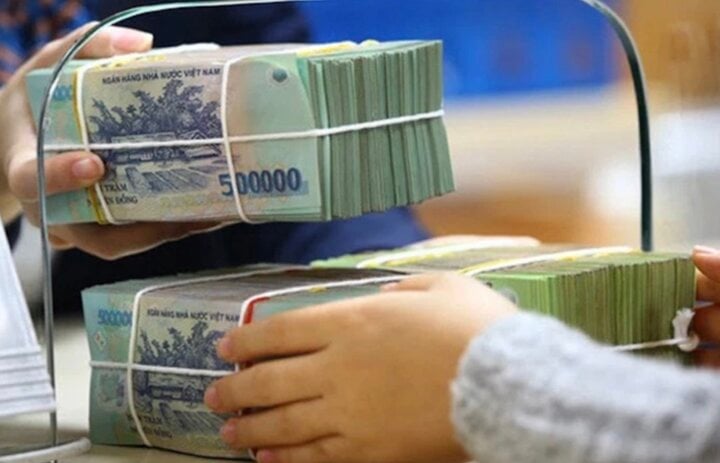BIDV, VietcomBank and VietinBank have just announced their consolidated financial statements for the first quarter of 2024. The reports show that the deposits of the State Treasury at these banks increased significantly in the first 3 months of the year.
Specifically, at BIDV, the State Treasury had a balance of VND 40,000 billion in term deposits and over VND 5,500 billion in non-term deposits. This is double the balance of over VND 19,000 billion deposited at the end of 2023.
At VietinBank, the State Treasury had a deposit balance of VND 45,445 billion by the end of the first quarter of 2024, more than double the amount at the end of 2023.
The balance of deposits of the State Treasury at Vietcombank was the lowest among the 3 state-owned banks, at just over VND 3,300 billion, but this figure was still more than 4 times higher than at the end of 2023.
Thus, the total deposits of the State Treasury at the above 3 banks reached over VND 94,000 billion.

Previously, a large amount of the State Treasury’s deposits at banks were in the form of non-term deposits with a balance that was often maintained at the level of hundreds of thousands of billion VND. However, from the end of 2019, the non-term deposits of the State Treasury will be transferred to the State Bank of Vietnam’s Transaction Office instead of being left overnight at a commercial bank as before. At the same time, banks will have to bid publicly to receive term deposits from the Treasury.
This regulation encourages the State Treasury to restructure its bank deposits by reducing non-term deposits and increasing term deposits. Banks also receive more stable deposits.
The term deposits of the State Treasury are required to be bid publicly, but the opportunity to receive this huge amount of money still belongs mainly to state-owned banks due to the principle of “”choosing a face to deposit money””.
The State Treasury is the total cash in the Treasury units; the State’s money in the Treasury accounts opened at the State Bank of Vietnam and commercial banks.
Currently, the temporarily idle State Treasury is used in order of priority, which is to lend to the State budget to offset the deficit, pay the principal and make advances when revenue has not yet been received. This amount is deposited for a term at commercial banks according to the principle of competitive bidding interest rates and purchasing government bonds for a term.
To maximize the benefits from idle sources, the State Treasury often deposits demand (non-term) and term deposits at commercial banks. This is a good source of capital that many banks want.





![[Photo Essay]: Experts, Managers, and Businesses Unite to Forge a Path Towards Sustainable Green Industry](https://xe.today/wp-content/uploads/2025/07/z678592918-150x150.jpg)


![[Photo Essay]: Experts, Managers, and Businesses Unite to Forge a Path Towards Sustainable Green Industry](https://xe.today/wp-content/uploads/2025/07/z678592918-100x70.jpg)






